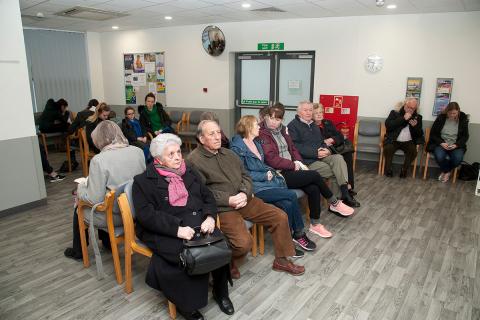Read our most frequently asked questions about first contact physiotherapy (FCP) roles in primary care.
About first contact physiotherapy roles
Though the CSP, BMA and RCGP recognise that different models have their own benefits, on balance, they recommend that existing providers of NHS services employ FCPs. This option embeds and integrates FCPs across the MSK pathway (where they can access training and peer support). It also enables the provider to ensure service consistency and staff continuity.
- FCP roles require advanced skills across many areas based upon the principles of shared decision-making and person-centred care. In England, the First Contact Practitioners and Advanced Practitioners in Primary Care: (Musculoskeletal) Roadmap has been developed by HEE. This is a document that provides a clear educational pathway from undergraduate to Advanced Practice for clinicians wishing to pursue a career in primary care. In England, CQC have now stipulated that stage 1 of the roadmap should be completed with a signed off portfolio of evidence before employment in primary care. Stage 2 is completed when working in primary care. This should be within six months for those in full-time equivalent FCP roles or longer if the employer and commissioner agree.
- FCP roles require advanced level skills to manage uncertainty and risk with a high degree of independence and autonomy. The capabilities and experience this requires strongly suggests that roles are at Band 7 First Contact Practitioner or Band 8a Advanced Practitioner. Employers should follow the First Contact Practitioners and Advanced Practitioners in Primary Care: (Musculoskeletal) Roadmap (section 1.3) for information.
- Some services are employing a mixed-banded team approach which provides opportunities for physiotherapists to develop Advanced Practice (Band 8a) knowledge and skills in primary care settings. For this to be a safe and successful model, robust governance and supervision arrangements must be in place. (View an example FCP job description.)
- The CSP estimates that approximately 10,000 registered physiotherapists currently work at the recommended Bands (7-8a) and so are likely to have the advanced physiotherapy skills required for FCP. In addition, there are a number of potential MSK FCPs who could undertake further training to upskill as part of a phased rollout. FCP services are also expected to reduce referrals into triage and secondary care physiotherapy services, enabling staff to move into first contact roles. Physiotherapy as a profession is growing across the UK with a 35% increase in Higher Education Institute pre-registration intakes since 2015. This expansion can provide backfill for mainstream MSK physiotherapy roles in order to allow clinicians with more advanced skills to adopt FCP roles.
The CSP recommends always using ‘physiotherapist’ as part of the job title (e.g. first contact physiotherapist). This ensures that patients are fully informed about who they are seeing. As a protected title, the use of ‘physiotherapist’ requires individuals to be registered and regulated by the HCPC. This safeguards patients’ interests and safety, and upholds public protection.
While many FCPs have undertaken the required post-registration training in medicines management (including prescribing and injection therapy), these tasks are not a prerequisite for first contact roles. However, FCP job specifications can vary due to local staffing, funding and capabilities. See the example FCP job descriptions and person specifications for further information.
If you have questions not addressed by the above answers, please post to the first contact physiotherapy iCSP forum or email fcp@csp.org.uk



